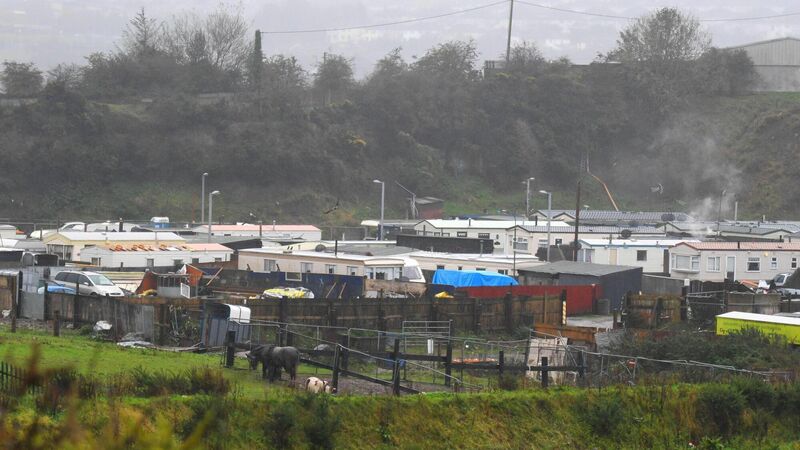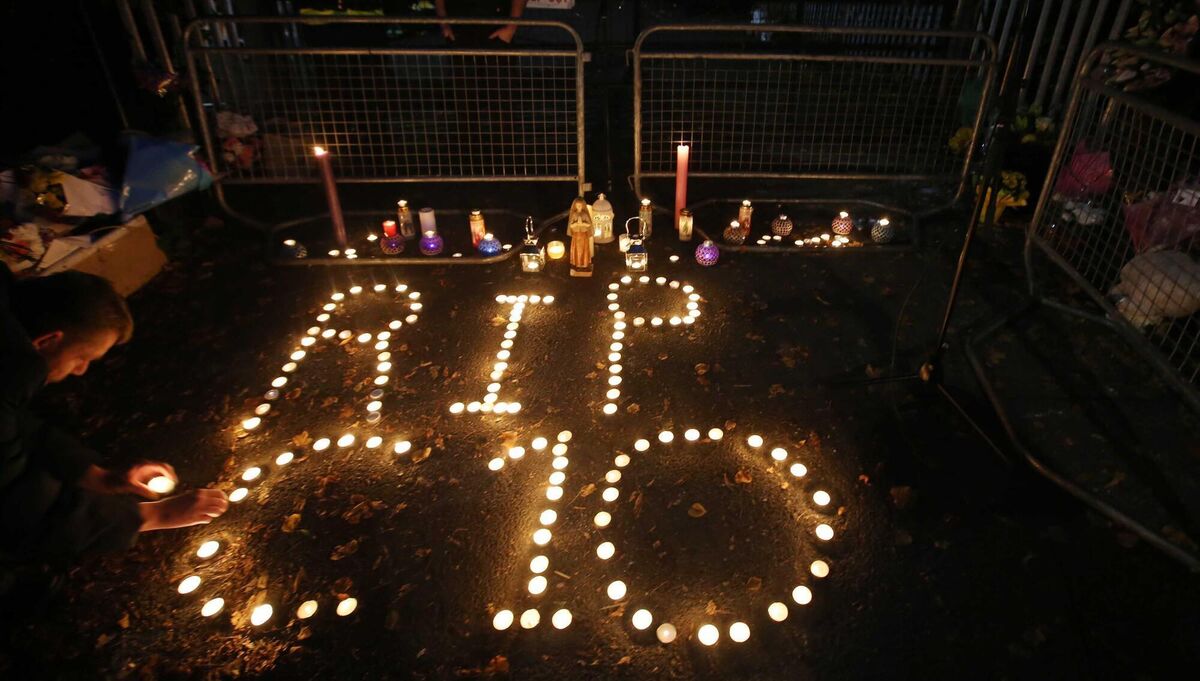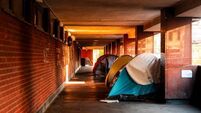Rory Hearne: Travellers bear the brunt of the homeless crisis

Spring Lane site, Blackpool, Cork City.
"It’s like an abandoned place that people forgot about, it’s like we’re forgotten, we feel like garbage.”
That’s the direct experience of a 12-year-old girl, living in a halting site, explained to the Ombudsman for Children.
In the early hours of October 2015, a fire broke out at a halting site in Carrickmines in South Dublin. Ten Travellers lost their lives in that tragedy including five children
Yet what has fundamentally changed since then? Why are Travellers still left in horrendous, unacceptable, living conditions?
The reported just last month that the Department of Housing identified a 'serious risk of loss of life' for Traveller families living at the Spring Lane halting site in Cork.
The accommodation crisis for Travellers has worsened further in recent years with the emergence of a major homelessness crisis.
In a hard-hitting report being launched tomorrow, the Cork and Kerry Regional Traveller Accommodation Working Group (RTAWG) outlines in stark detail this "hidden homelessness" crisis. It’s vital reading for anyone concerned with basic human rights in this country.
A quarter of homeless children living in emergency accommodation outside of Dublin are Travellers. A parent, who is a Traveller and homeless, describes living in emergency accommodation:
“My partner and I and the three small children have been living in hotels for the past 18 months. At first we were grateful for the room and the bed, but it’s almost like a prison... The children are going mad, kept in a hotel room all day.”
Travellers are being forced into homelessness at an alarming rate, due to overcrowding reaching critical levels.
The report highlights increasing numbers of young people and young families in the south-west region couch surfing, staying with family in already overcrowded conditions and doubling up on overloaded halting sites and in relatives' yards, as well as roadside camps, due to the failure of the local authorities to supply sufficient levels of Traveller accommodation.
The number of Traveller families sharing housing and doubling up has doubled since 2011.
In 2018, Travellers made up 9% of all homeless families in Dublin, yet Travellers make up less than 1% of the total population. Women accounted for 56% of homeless Travellers. These figures most likely reflect an underestimate due to fears of discrimination.
Such high percentages of homeless Travellers are shocking. If the total Irish population experienced the same proportion of homelessness as the Traveller population, there would be 125,000 people homeless in Ireland.

In 2018, the RTAWG found 22% of Traveller families in the South West were homeless. But when they include overcrowding, 85.6% of families surveyed were homeless. Almost a third of the homeless families had at least one member with a disability.
Despite these bleak statistics, this report shows that the reality is, in fact, much worse. Official homelessness statistics do not include the "hidden homeless" in overcrowded and highly unsuitable conditions.
The widespread discrimination by private landlords towards Travellers, refusing to rent to them, despite being in contravention of the Equal Status Act, contributes to homelessness. The report states it is “commonplace and considered necessary for Travellers to hide their identity, in order to rent from private landlords” and they risk eviction.
Nationally, the Housing Assistance Payment (a payment to help cover a tenant’s rent in the private rental sector) is the main way homeless families exit from emergency accommodation.
But even with HAP, Travellers cannot find landlords to rent to them, which means they are stuck for long periods in emergency accommodation, and make up a higher proportion of homeless families.
As one of the most discriminated-against groups in Irish society with an 80% unemployment rate and a suicide rate that is six times the national average, Travellers are an ethnic minority group with specific accommodation needs.

They are reliant upon local authorities to fulfil housing and accommodation needs under the Housing (Traveller Accommodation) Act 1998 which places the statutory duty for provision of Traveller-specific housing with local councils.
However, decades of inadequate policies on Traveller accommodation have been further weakened by a lack of political will to provide Traveller-specific accommodation. Between 2008 and 2018, €68m of funding for Traveller specific accommodation went unspent by local authorities.
The report recommends putting the right to housing in the Constitution to strengthen the legislative and policy framework.
The United Nations right to housing states housing must be “habitable, in terms of providing the inhabitants with adequate space and protecting them from cold, damp, heat, rain, wind or other threats to health” and culturally adequate, to “enable the expression of cultural identity and diversity of housing”.
Mincéirs (Irish Travellers) are a traditionally nomadic ethnic minority indigenous to Ireland. But the Irish State sought to deny their identity and assimilate them.
The 1960 Commission on Itinerancy described “social problems inherent in their way of life”, with former taoiseach, Charles Haughey, disgracefully stating, “there can be no final solution to the problems created by itinerants until they are absorbed into the general community”.
Assimilation was an institutional response to ethnicity denial, Dr Sindy Joyce has explained. This leads, she has said to, “what is often referred to as failure in delivery of services and resources, is in fact, a successful policy of identity denial and anti-Traveller racism”.
Travellers are still criminalised for their traditional nomadic way of life by Section 24 of the Housing Act 2002 which makes stopping on public and private lands a criminal offence.
A direct consequence of this is many halting sites are severely overcrowded and in breach of fire and safety regulations. The report reveals that local authorities are actually making families homeless by evicting Travellers.
At an EU level the ETHOS approach is viewed as the most accurate way to measure homelessness, which includes those living in inadequate housing (such as in caravans on illegal campsites, in unfit housing, in extreme overcrowding).
These are not defined as homeless in Ireland, which means the State does not respond appropriately.
Enforceability is needed to progress Traveller accommodation, in a system based on cultural needs including; group housing, high quality serviced halting sites, standard local authority housing and greater state support for the Traveller voluntary housing association, Cena.
Traveller groups recommend removing Traveller housing from the remit of local authorities to a dedicated Traveller Housing Agency.
The endemic, institutional, and everyday racism and discrimination towards Travellers must end. The Irish state has no more excuses. It must lead and deliver on Traveller accommodation.
It is horrific to have to say this, but will there be a repeat of the Carrickmines tragedy before we see sufficient and systemic action?















